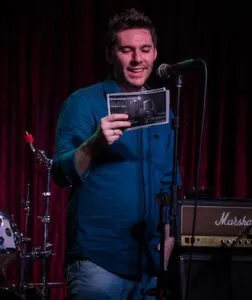In internet forums, videos on YouTube or even in some music schools that offer singing classes, it is very common to hear the following sentence: the first thing we have to do when starting classes is to find out if you are a soprano, alto, tenor or down.
is this really true? Does knowing if you are a soprano, for example, make a lot of difference in the study of singing (especially at the beginning of your walk)?
To answer this question, we need to understand a little about the history of music, when and why singing lessons appeared.
The first records we have of one person “teaching” another to sing are a bit confused with the beginnings of the opera. It was precisely in opera that the vocal repertoire began to be a little more demanding in technical and musical terms and it was noticed that some people had a little more resourcefulness when singing the first arias while others had more difficulty.
Around the 17th century, the methods used to teach singing were very precarious. Obviously, all the advances in medicine were lacking in terms of exams and studies that all subsequent centuries have provided us, but there was also a lack of time for experience and reflection on the problems and ways to solve them on the part of vocal coaches (later known as vocal coaches). It was very common to appeal only to intuition, the use of very abstract images and very personal points of someone who sang well.
And why is this bad?
Simply because intuition doesn’t work for everyone and especially doesn’t work all the time; abstract images may make sense to one person and not to another. Extremely personal methods are also problematic because they may not make any sense to your colleague or student.
What if I told you that there are singing teachers who still make these same mistakes today? Well, that’s why we even wrote a post about the best way to choose your vocal coach. Access this post here
And what does that have to do with figuring out if I’m a soprano, an alto, a tenor, or a bass?
It’s all about! Finding out your vocal classification , i.e. whether you are soprano, tenor, alto or bass is very important in opera and choral music.
It is undeniable that the history of the voice is closely linked to the history of opera, but in popular music we have a fundamentally different point: the use of the microphone. In it we can make a treble or a bass that is not very powerful (in terms of sound amplitude) and even so it can work within the music. In opera or choral, you need to know exactly your vocal classification so that in all the notes that you need to sing you have the possibility of having a lot of power (again in terms of amplitude) of sound.
Another point that popular music differs from is the flexibility in relation to the tones of the songs. It is very difficult in opera or choral music to change the key. The orchestra and the other singers already have all the scores ready and any changes in key would involve a lot of work to redo the parts and rehearse the songs. Also, many songs are very difficult to play on their instruments or voices and a change in key could favor one singer but hurt everyone else.
Well, what if my interest is opera or choral?
So yes, as we said, the vocal classification has an important point, but consider only 2 points first:
- at the beginning of your studies your vocal range will be very small and it may be difficult to fit you into any vocal type; better to go by exclusion. For example, you can already tell at the beginning if a singer over 20 years old will NOT be an alto.
- the best vocal classification is done through the passing note ( bridge or passagio ) and not by the vocal range. That’s because there are people with very large or very small vocal ranges, but the pass-through region can show the vocal type in a better way. In the case of people with a small vocal range, vocal technique studies help. To find out your vocal classification by passing note, consult your vocal coach or wait for our new posts!
After making these two considerations, let’s go to the main vocal types:
- Soprano: the highest of female voices;
- Mezzo-soprano: a female middle voice;
- Alto: rare voice (mainly in Brazil); the lowest of female voices;
- Countertenor: very rare voice; high-pitched male voice, similar to a female voice;
- Tenor: high male voice;
- Baritone: male middle voice;
- Bass: rare voice (mainly in Brazil); the deepest male voice.
As we also said in the post about how to discover your tone (access here ) it is very important to see if you are not managing to make a high note due to lack of vocal technique study or some physiological impossibility. Most of the time there is no study at all. Because of this, many people think they belong in the bass classifications (alto and bass), but they are actually baritones, tenors, mezzo-sopranos, or sopranos.
So, if you are a popular singer, don’t get too attached to these classifications, study technique, learn to use the microphone and learn to change the key of some songs in the right way . If you are interested in opera or choir, study vocal technique too, be patient and learn to correctly classify your voice.
Interesting how vocal technique applies to both cases, isn’t it?




